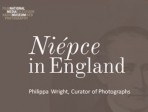 00:48:00
00:48:00
Niépce in England
In October 2010 the National Media Museum hosted the 'Niépce in England' Conference where they could announce and share with the photographic, conservation and scientific communities the ground breaking findings which had been discovered during the ....
More details | Watch now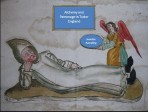 00:39:00
00:39:00
Alchemy and patronage in Tudor England
Dr Jenny Rampling, Dept. of History and Philosophy of Science, Cambridge. In early modern England, alchemical practitioners employed a range of strategies to win the trust and support of powerful, even royal, patrons: from the preservation of healt....
More details | Watch now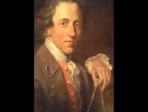 00:45:00
00:45:00
John Soane and the learned societies of Somerset House
The architect John Soane became an Associate of the Royal Academy in 1795, a Fellow of the Society of Antiquaries in 1796 and, finally, a Fellow of the Royal Society in 1821. All three were then housed in Somerset House. Soane was an avid collector a....
More details | Watch now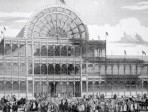 00:47:00
00:47:00
‘Behold a New Thing in the Earth!’: Reflections on Science at the Great Exhibition
The Great Exhibition of 1851 has routinely been portrayed as a celebration of science, technology, and manufacturing. However, for many contemporaries – including Prince Albert – it was a deeply religious event. In analysing responses to the Exhi....
More details | Watch now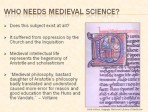 00:48:00
00:48:00
Science and the Church in the Middle Ages
It is commonly assumed that what little scientific advance there might have been in the Middle Ages was held back by the power of the Church. But, in fact, there was important progress in science and technology during the medieval period. And the....
More details | Watch now 00:46:00
00:46:00
Paul Dirac and the religion of mathematical beauty
For the great theoretical physicist Paul Dirac FRS, the importance of mathematical beauty was 'like a religion'. Although his first papers on quantum mechanics showed an acute aesthetic awareness, he first set out his principle of mathematical beauty....
More details | Watch now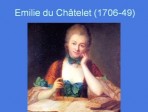 00:43:00
00:43:00
Ghosts of women past
Dr Patricia Fara, Clare College, Cambridge. "I do not agree with sex being brought into science at all. The idea of 'woman and science' is completely irrelevant. Either a woman is a good scientist, or she is not." So declared Hertha Ayrton over hun....
More details | Watch now 02:00:00
02:00:00
Sir Andrew Huxley Memorial Lecture
Sir Andrew Huxley, President of the Royal Society from 1980 – 1985, died on 30 May 2012. A memorial event in his honour will be held on 17 October 2012 at 6pm at the Royal Society. It will include presentations on various aspects of his scientific ....
More details | Watch now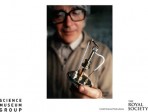 01:02:00
01:02:00
Heroes of science
Scientists love them. Historians of science can't stand them. The view that science rests on the shoulders of heroes and on them alone cannot be defended. Nonetheless, the public are moved and inspired by the stories of astronauts who've risked their....
More details | Watch now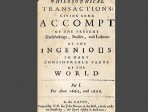 00:49:00
00:49:00
Triangulating positions: Hevelius, Halley and the management of the open-sights controversy
When the decade-long argument between Johannes Hevelius, the Danzig astronomer, and Robert Hooke about the respective merits of plain and telescopic sights for astronomical instruments reared its head again in 1685, the resulting controversy threaten....
More details | Watch now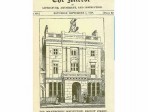 00:54:00
00:54:00
Sir George Cayley (1773-1857), the father of flight
This talk discusses Cayley's pioneering aviation work, and his roles as an inventor and as founder of the Royal Polytechnic Institution in Regent Street. Cayley's work will be related to the scientific and intellectual milieu of the day, and to debat....
More details | Watch now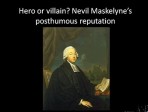 00:49:00
00:49:00
Hero or villain? Nevil Maskelyne’s posthumous reputation
Nevil Maskelyne, 5th Astronomer Royal and Fellow of the Royal Society, is today best known as the villain of Dava Sobel’s Longitude. This talk will, however, look further back and examine how Maskelyne has fared since his death in 1811, attempting ....
More details | Watch now
